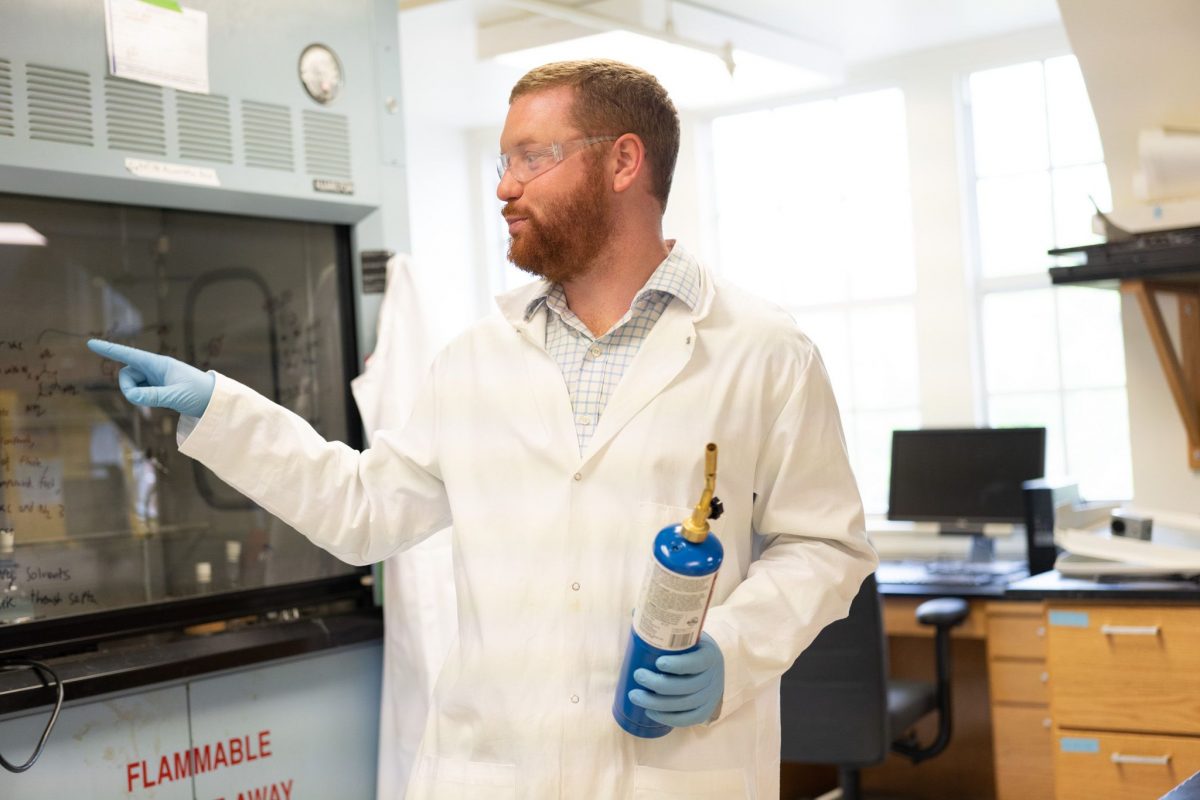
Austin Evans, PhD
UF Chemists Score Major Grant for Breakthrough Research in Polymer Science
Polymer chemists Austin Evans and Brent Sumerlin receive U.S. government funding
Austin Evans and Brent Sumerlin from University of Florida’s Department of Chemistry have secured a generous research grant from the U.S government that will fuel their materials science research. The Multidisciplinary University Research Initiatives (MURI) program is a highly competitive grant program funded by the U.S. Department of Defense. It aims to accelerate research by providing a network spanning multiple scientific disciplines, state-of-the-art research facilities, and ample funding.
With this funding, the duo can expand their work on synthetic polymers, which has already enjoyed tremendous success. Last August, they discovered a new way to purify pharmaceuticals, and earlier this year, their team helped discover a new form of carbon. The new funding Evans and Sumerlin have just received will continue to drive innovations in polymer science at the University of Florida.

“I’m particularly excited about how the MURI facilitates our interactions with members of the Department of Defense Research Laboratories and National Laboratories such as Oak Ridge National Lab and NIST, which are also world-class research enterprises,” Evans said.
UF is no stranger to receiving MURI grants, although they are rare. The last time a group of researchers from UF received this grant was in 2017 at the Institute of Food and Agricultural Sciences. This MURI award will also support scientists across the country who will collaborate with Evans and Sumerlin in their polymer science aims.

“This MURI award represents a great opportunity for scientists at UF to build bridges with our collaborators at Carnegie Mellon University, the University of Michigan, and the University of Delaware who bring together the necessary expertise to drive innovation in polymer science,” Sumerlin said.
Evans and Sumerlin attracted the attention of the U.S. government with their research into synthetic polymers. Polymers are complex substances made up of macromolecules that are both naturally occurring and synthetic. Synthetic polymers are not a new technology. There are many examples including plastics, silicones, and even toys like Silly Putty, but they are constantly becoming more complex and versatile.
The polymers Evans and Sumerlin are working to develop are designed to be soft and thermally conductive, which would allow them to transfer heat instead of just insulating it. The technology is still at a very early stage of development, but Evans is hopeful that the MURI grant will act as a stepping stone towards making it a reality.
“Despite the ubiquity of thermal conductivity phenomena,” Evans explained, “we still don’t understand how this works at a microscopic level for polymeric materials. We’re going to build this fundamental understanding and use that to produce next-generation thermal transport materials.”
Evans believes that this technology could be used to create smaller computer chips, environmentally adaptive fabrics, and more efficient batteries.
For more information about the MURI program and for a list of all 2023 winners, click here.


